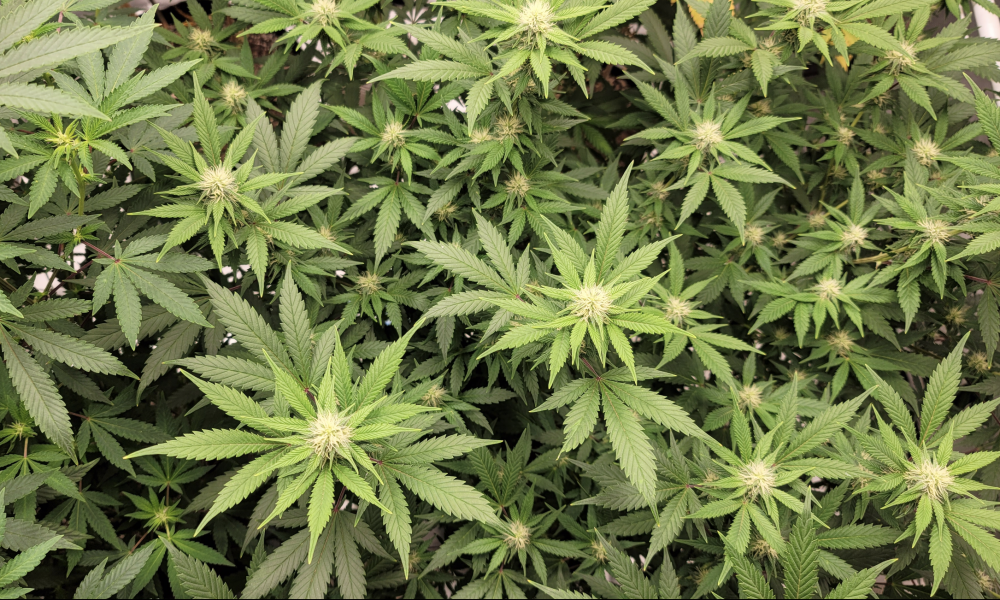The Justice Department is seeking White House approval to update its data collection process related to marijuana pardon certificates that it is issuing under the president’s recently expanded clemency proclamation.
In a notice published in the Federal Register on Friday, DOJ’s Office of the Pardon Attorney said it’s requesting authorization to gather information about people who are applying for pardon certificates under the proclamation President Joe Biden issued in December for those who’ve committed federal cannabis possession offenses, including cases that took place on federal lands.
The department has already been collecting data on certificate applicants from the initial round of pardon recipients under Biden’s earlier 2022 cannabis pardon proclamation, but it needs the White House Office of Management and Budget (OMB) to authorize additional information gathering under the expanded clemency move in order to “provide statistical analysis of the demographics of pardon recipients and applicants.”
A 60-day public comment period will open starting on Friday for interested parties to provide feedback on the “practical utility” of the request, the accuracy of its estimated burden of the data collection and possible improvements to the proposed process.
“The second proclamation expanded the statutes of conviction eligible for a pardon, the circumstances under which eligible persons have been pardoned, and the time frame covered by the pardon,” the notice says. “Consequently, the number of persons eligible to apply for a certificate proving the pardon has also increased.”
“Importantly, there is virtually no change to the burden that an individual applicant will incur,” DOJ said. Applicants will continue to be asked about their citizenship, the court that had jurisdiction over their case and demographic information, for example. The filing says that it expects it to take an average of 120 minutes for people to fill out the pardon certificate application and provide the necessary information for their requests to be processed.
People who are eligible for the pardons don’t need to apply for a certificate; the relief is automatic, but the administration wanted to give individuals an opportunity to have it formally documented if they desire. The Justice Department was quick to open the updated applications and has already begun issuing certifications.
DOJ said in the new notice that it expects “the new proclamation has approximately doubled the potential applicant pool,” meaning roughly 13,000 people may be eligible. However, the expectation is that “1,500 applicants annually” for certificates “is a reasonable projection.”
The president’s pardon itself is largely symbolic, signaling the administration’s position that low-level marijuana cases should not be prosecuted. A pardon doesn’t expunge records—and people aren’t required to obtain the certification—but it represents an official acknowledgement that the relief has been granted.
Yet Biden has repeatedly claimed otherwise, including during a campaign event in South Carolina last week where he falsely suggested that his act of clemency “expunged” records and that people were released from prison.
As advocates have also pointed out, there are still people in federal prison over other non-violent marijuana offenses. They’ve pushed the Biden administration to do more, including keeping his key cannabis campaign pledge to decriminalize marijuana.
The president hasn’t indicated a willingness to promote decriminalization over his first three years in office, though he did direct an administrative review into cannabis scheduling that’s ongoing. The U.S. Department of Health and Human Services (HHS) has recommended moving marijuana from Schedule I to Schedule III of the Controlled Substances Act (CSA), and now it’s up to the Drug Enforcement Administration (DEA) to make the final call.
Meanwhile, by repeatedly touting his mass cannabis pardon, it seems Biden is aware of the political popularity of marijuana reform. And a recent poll suggests he stands to gain significantly in terms of favorability if his scheduling directive results in a reclassification under federal law.
It found that voters’ impression of the president jumped a net 11 points after hearing about the possible implications of the rescheduling review—and that includes an 11-point favorability swing among young voters 18-25 who will be critical to his reelection bid.
FDA Reached ‘Flawed’ And ‘Misguided Conclusion’ To Reschedule Marijuana, GOP Congressman Tells DEA Administrator
Photo courtesy of Mike Latimer.
Read the full article here

